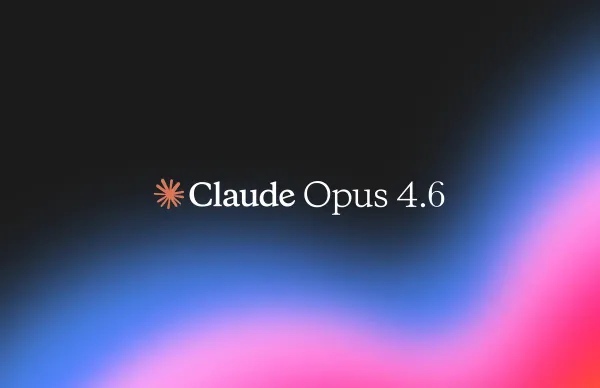The Zapply Experiment Results
Marketing Data Breakdown & Insights
Before investing heavily in development, we needed to validate whether remote software engineers would be interested in an automated job application tool. Instead of making assumptions, we ran a 2-week marketing experiment across Google Ads, LinkedIn Ads, and Twitter Ads to analyze:
- Do developers want Zapply?
- Which marketing channel brings the best results?
- How much does it cost to acquire a potential user?
- Are users willing to pay for a premium version?
Additionally, we shared Zapply on Indie Hackers and received some positive early feedback from the community. 🚀
📊 The Marketing Campaign Setup
1️⃣ Key Metrics to Measure
We tracked the following metrics to evaluate marketing performance:
| Metric | Definition | Formula | Data Source |
|---|---|---|---|
| Budget Spent | Total amount spent on ads | - | Google Ads, LinkedIn Ads, Twitter Ads Dashboards |
| Clicks (Visitors) | How many people visited Zapply.dev | - | Google Analytics (UTM tracking) |
| Signups (Conversions) | Emails collected via the Zapply landing page | - | Mailchimp |
| Conversion Rate (%) | How many visitors converted? | (Signups / Clicks) × 100 | Manual Calculation |
| Cost Per Lead (CPL) | How much it costs to acquire a lead? | Budget Spent / Signups | Manual Calculation |
| Willingness to Pay (PAY) | How many users showed interest in premium? | (Users selecting "Yes" for PAY) | Mailchimp |
2️⃣ Campaign Overview & Targeting
We allocated a daily budget of $25 per platform for around 10–12 days, running ads across:
✅ Google Ads (Search)
- Target: Remote software developers searching for jobs and automation
- Goal: Capture engaged users who need job automation.
✅ LinkedIn Ads (Paid)
- Target: Developers, software engineers, overemployed professionals
- Goal: Reach high-quality professionals.
✅ Twitter Ads (Paid)
- Target: Developers discussing remote work & job hunting
- Goal: Drive developer engagement & traffic.
📈 Campaign Performance Breakdown
1️⃣ Budget & Ad Performance
| Platform | Budget Spent ($) | Clicks | Impressions | CTR (%) |
|---|---|---|---|---|
| Google Ads | 317 | 1,400 | 10,900 | 12.8% |
| LinkedIn Ads | 282 | 50 | 18,000 | 0.28% |
| Twitter Ads | 173 | 1,487 | 1,208,976 | 0.12% |
2️⃣ Conversion Rate & Cost Per Lead
| Platform | Signups | Conversion Rate (%) | CPL ($) |
|---|---|---|---|
| Google Ads | 340 | (340 / 1400) × 100 = 24.3% | $317 / 340 = 0.93 |
| LinkedIn Ads | 4 | (4 / 50) × 100 = 8.0% | $282 / 4 = 70.50 |
| Twitter Ads | 3 | (3 / 1487) × 100 = 0.20% | $173 / 3 = 57.67 |
3️⃣ Willingness to Pay (PAY) Breakdown
| Response | Users | Percentage (%) |
|---|---|---|
| Yes | 124 | 32.4% |
| No | 172 | 44.9% |
| No Response | 86 | 22.5% |
📊 Key Findings & Insights
1️⃣ Google Ads Dominated the Experiment
✅ Most effective platform with 340 signups (24.3% conversion rate)
✅ Cheapest CPL ($0.93 per lead)
✅ High engagement (CTR: 12.8%)
💡 Scaling this campaign is a priority.
2️⃣ LinkedIn Ads Performed Poorly
❌ Extremely high CPL ($70.50 per lead)
❌ Very low CTR (0.28%) → Almost no one clicked.
💡 Recommendation: Pause or rethink LinkedIn Ads.
3️⃣ Twitter Ads Were Ineffective
❌ High reach (1.2M impressions) but very low CTR (0.12%)
❌ Low conversion rate (0.20%)
💡 Twitter might work better for branding, not direct conversions.
🌍 Country Breakdown: A Major Weakness
One major issue: Almost no high-income countries signed up.
| Top 5 Countries | Signups |
|---|---|
| 🇮🇳 India | 166 |
| 🇲🇦 Morocco | 45 |
| 🇵🇰 Pakistan | 28 |
| 🇳🇬 Nigeria | 20 |
| 🇿🇦 South Africa | 12 |
💡 Only 7 signups from the U.S. and minimal presence in Europe.
💡 Next step: Test new targeting strategies for high-paying countries.
🔥 Final Thoughts & Next Steps
Based on the results, Zapply has strong initial demand. The Google Ads campaign alone generated 340 signups with a 24.3% conversion rate—far exceeding the 5-10% benchmark for a successful product. Additionally, 32.4% of users explicitly expressed willingness to pay for a premium version, indicating a solid monetization opportunity. However, a key issue is that most signups came from lower-income countries, which may affect long-term pricing strategy. Our next step is to refine our targeting to reach high-paying markets while maintaining the high conversion efficiency we achieved in this experiment. Next steps:
- 📌 Increase Google Ads budget—it’s the most effective channel.
- 📌 Target high-paying countries (U.S., Canada, U.K., Germany, Australia, etc).
- 📌 Rethink LinkedIn & Twitter Ads—either optimize or pause.
🚀 Zapply is moving forward—bigger and better! Stay tuned! 🔥

